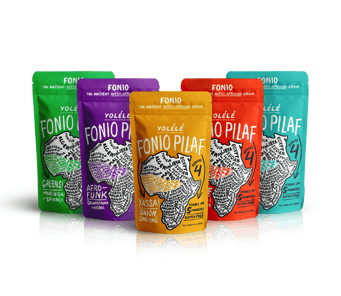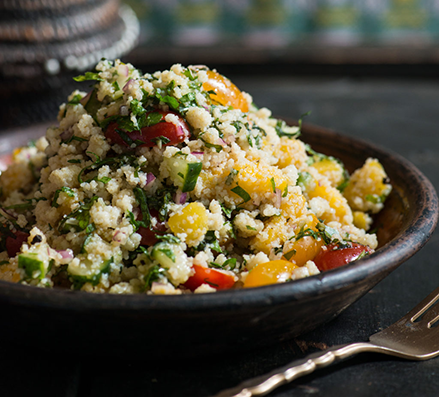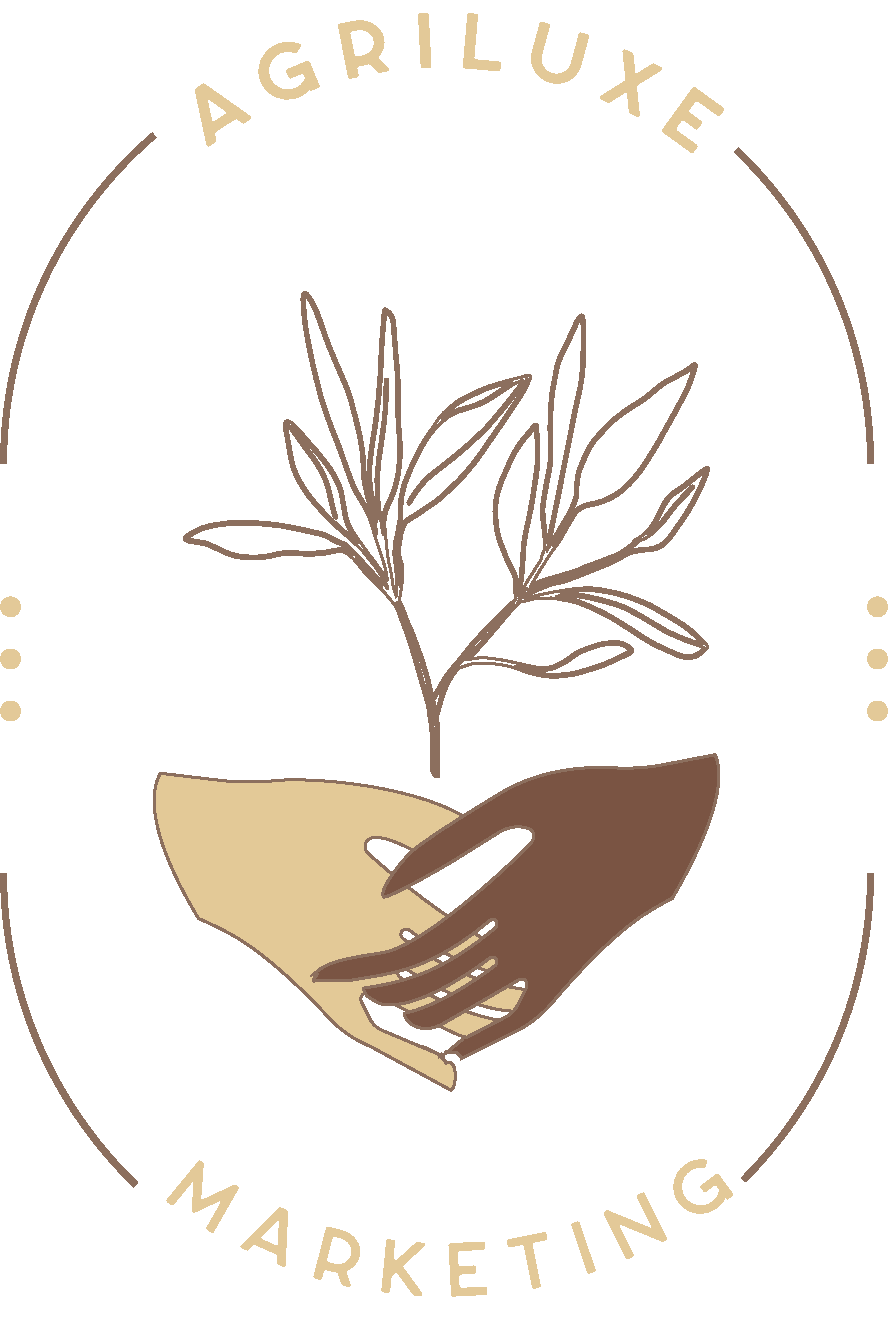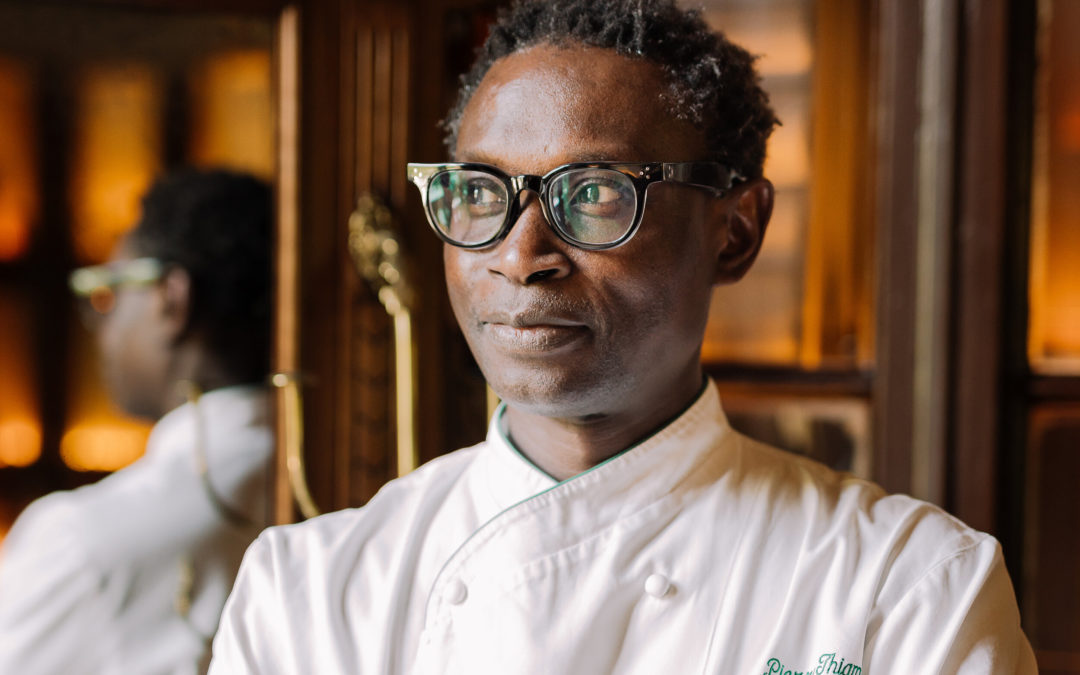Fonio, also known as the “seed of the universe,” is an ancient African grain traditionally served to guests of honour in West African – particularly the Sahel – culture. AgriLuxe Marketing chatted with Chef Pierre Thiam about his work in linking smallholder African fonio farmers to international markets. Chef Thiam, who cites Léopold Sédar Senghor – Senegal’s first president – as one of his early influencers, has a vision to transform fonio into a world class crop for Africa’s socio-economic and environmental benefits. The following are his responses to our questions.
Who is Pierre Thiam?
I grew up in Dakar and moved to the US in the late 80s with the goal to finish my degree in physics and chemistry. In NY, I stumbled into cooking and never looked back. I am a father, a husband, a chef, a cookbook author, a restaurateur and a social entrepreneur.
You are a successful chef in New York. A key ingredient you use in your food preparation is fonio, a “supergrain,” indigenous to Africa. One of your goals is to increase access for smallholder fonio farmers to a growing market for the crop. How do we ensure that African farmers take competitive advantage of opportunities in the global cereal market on one hand and get a fair share of the profit pie on the other?
One way to do it is to support small farming communities in Africa. We can do it by equipping and training farmers in better agricultural practices and also by opening markets for their products and buying them at fair price. My company Yolélé has as its mission to bring economic opportunities to small farming communities in Africa by identifying crops that are nutritious, delicious and great for the environment. One of our first products is the ancient grain fonio. Today we are distributed all over the US at all the Whole Foods, which is the largest natural supermarket chain in America. Fonio is a very nutritious grain that’s drought resistant and grows in poor soils. It has deep roots that brings nutrient to the soil and restores it.
Do you see a conflict between promoting eating local and what’s in season and promoting exports of indigenous African produce to health conscious consumers in the West?
No, there is no conflict. Eating local is great! Opening markets for underutilised crops is necessary for the planet, to save biodiversity, and for our health, as we need to diversify the global diet.
I know you are conscious of the fate of quinoa producing farmers in Latin America and adamant that a similar fate does not befall African fonio producers. What are some key issues to be addressed to ensure the sustainability of fonio production and consumption?
Indeed, the quinoa story has been inspiring to us and we are taking the necessary steps to avoid falling into a similar trap. Our approach is to avoid a boom for fonio as it happened with quinoa. Because a boom is always followed by a bust. The way to do it is to make sure that the demand is in coordination with the supply. That’s why we are constantly growing our network of farmers in collaboration with NGOs and other organizations that are implanted in our regions of operation.
We also invest in research on fonio in collaboration with research institutes like ISRA (the Senegalese Institute for Agricultural Research) and with Cornell University in the US to improve the agronomy and production of fonio.
Additionally, we are collaborating with local investors to build a mill that will process fonio in a way that’s more efficient. Fonio is a grain that’s easy to grow but difficult to process. It’s a tiny grain with an inedible skin that needs to be removed. It’s a tedious and time consuming process. The current rate of processing is 1/10 of a ton per hour with close to 40% wastage. With a mill that will process 3 tons of fonio per hour without any waste, we will contribute to removing a bottle neck and free up farmers to focus on growing more fonio.
Lastly, we are also approaching policy makers at a regional level to protect the appellation of fonio, because it’s a heritage of the West African region where it has been grown for 5,000 years. This way, Big Agri will not be tempted to grow fonio in Texas or Montana as it’s been the case for quinoa.



What will be your legacy to sustainable food systems in Africa?
The success of fonio can serve as a model of development in the region. There are many other underutilised crops that are sustainable and that can have a similar path. Yolélé’s vision is to become the African pantry.

Photo credit: Chef Pierre Thiam



Recent Comments